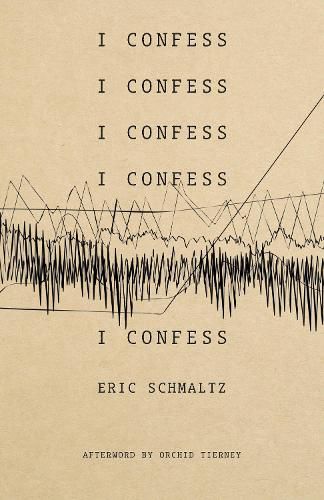Readings Newsletter
Become a Readings Member to make your shopping experience even easier.
Sign in or sign up for free!
You’re not far away from qualifying for FREE standard shipping within Australia
You’ve qualified for FREE standard shipping within Australia
The cart is loading…






How is a lyric poem like a polygraph machine? A personal, poetic examination of the technology of truth-telling.
Eric Schmaltz's I Confess delves into the complexities of truth-telling in poetry, and the history of technologies designed to produce truth from willing and unwilling subjects, considering what it means to use a device poetry or polygraph to draw out one's most profound feelings and emotions.
Exploring the intersection of power, technology, and language, I Confess meditates on lie detection and its history, including trials by ordeal and pseudoscientific technologies. The poet then turns to his own personal experiences working with a lie detector and polygraph analyst. Taking himself as the central subject of the book, Schmaltz puts his subjectivity and positionality under scrutiny.
The answers to questions such as What does family mean to you? and Can you describe a time when you felt your best? inspire a range of forms from conventional lyrical verse to list poems to palindromes to visual poems. With an afterword by Orchid Tierney,I Confess is a personal, poetic document of truth's performance under duress.
$9.00 standard shipping within Australia
FREE standard shipping within Australia for orders over $100.00
Express & International shipping calculated at checkout
How is a lyric poem like a polygraph machine? A personal, poetic examination of the technology of truth-telling.
Eric Schmaltz's I Confess delves into the complexities of truth-telling in poetry, and the history of technologies designed to produce truth from willing and unwilling subjects, considering what it means to use a device poetry or polygraph to draw out one's most profound feelings and emotions.
Exploring the intersection of power, technology, and language, I Confess meditates on lie detection and its history, including trials by ordeal and pseudoscientific technologies. The poet then turns to his own personal experiences working with a lie detector and polygraph analyst. Taking himself as the central subject of the book, Schmaltz puts his subjectivity and positionality under scrutiny.
The answers to questions such as What does family mean to you? and Can you describe a time when you felt your best? inspire a range of forms from conventional lyrical verse to list poems to palindromes to visual poems. With an afterword by Orchid Tierney,I Confess is a personal, poetic document of truth's performance under duress.